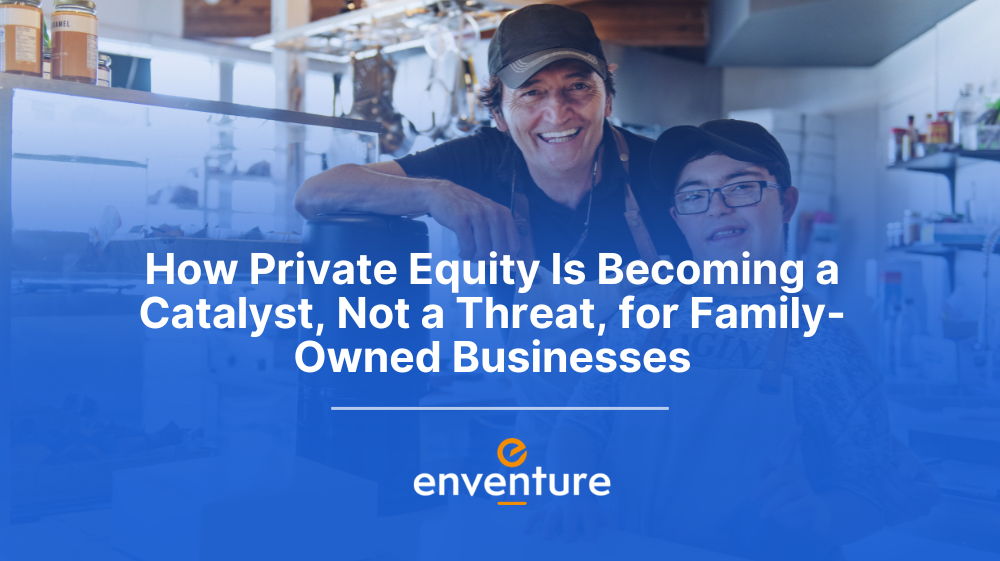As family businesses face succession challenges across the U.S. and India, a TIME Business News feature explores how private equity—once seen as a threat—is emerging as a strategic partner in preserving legacy and driving growth.

By TIME Business News
For decades, private equity has carried a controversial reputation in the world of family businesses—often viewed as the outsider that ushers in sweeping changes, cost-cutting, and cultural erosion. But as generational transitions gain pace in markets like the U.S. and India, a new narrative is beginning to take hold—one led by firms like Enventure.
Ankit Shrivastava, Founder and Managing Partner at Enventure, wants family business owners to see private equity not as the end of their legacy, but as a strategic ally for its next chapter.
“Family business owners commonly worry that private equity investments will result in losing control while destroying their company culture and dismantling their established business,” Shrivastava told TIME Business News in a recent interview. “But the process of succession should represent an acceleration—not an exit.”
It’s a message that resonates at a critical time. According to the Harvard Business Review, fewer than 30% of family businesses survive into the second generation—and only 13% make it to the third. Without proactive succession planning, legacy businesses face risks that money alone can’t fix.
Family enterprises make up a significant portion of the global economy. Credit Suisse reports that they contribute over 70% of global GDP and 60% of employment. In the U.S., they employ close to 83 million people and account for more than half of the country’s GDP. Yet despite this economic heft, most lack clear succession strategies.
This is where Enventure’s approach diverges from traditional private equity models. Instead of replacing founders or overhauling operations, Enventure focuses on enabling continuity—with professional leadership, operational upgrades, and long-term growth strategies tailored to each business.
“Our investment goes beyond capital,” says Shrivastava. “We support the founder’s vision by adding depth to leadership and preserving what made the company successful in the first place.”
That support often includes a structured leadership transition, a “Legacy Charter” that captures the company’s core values, and advisory roles for founders post-transaction—ensuring continuity in culture and governance.
Shrivastava emphasizes the importance of early and inclusive planning. “We tell founders to think about their post-transaction role early. That might mean staying on as an advisor or board member. What’s essential is continuity in both business strategy and leadership values.”
Effective communication also plays a pivotal role. Enventure encourages businesses to clearly articulate transition plans to employees, customers, and partners—reinforcing stability and confidence during periods of change.
The results speak for themselves. One recent example involved a sustainable manufacturing company in India. Rather than pushing a full acquisition, Enventure opted for a growth investment, preserving the founder’s clean energy mission while scaling operations. The partnership led to the creation of over 200 new jobs and attracted further investment—all while keeping the founder’s vision intact.
It’s a model that’s gaining traction. PwC’s 2023 Family Business Survey found that 43% of family firms anticipate leadership changes within the next five years—yet only 34% have a robust succession plan in place. That gap signals opportunity for private equity firms capable of balancing financial goals with cultural stewardship.
“Founders are increasingly seeking partners who will preserve their legacy while transforming their operations to achieve global competitiveness,” says Shrivastava.
As demographic shifts reshape family ownership dynamics in both mature and emerging markets, private equity is being called upon to do more than finance growth. It’s being asked to preserve identity, guide transitions, and shape sustainable futures.
“The trusted stewards of these businesses,” Shrivastava concludes, “will be private equity firms that combine capital with operational expertise, cultural sensitivity, and a long-term vision—not just financial engineering.”
This marks more than a financial evolution—it represents a cultural shift in how private equity engages with legacy. For founders ready to pass the baton, it’s no longer about letting go. With the right partner, it’s about launching forward—stronger, smarter, and ready for a new era.
Source: https://timebusinessnews.com/private-equity-isnt-the-end-of-a-family-business-it-might-be-its-beginning/
Bold Moves,
Brighter Futures
Let's team up and make a difference.
Subscribe to our newsletter
Enventure is an exit-driven fund with high-yield opportunities in the healthcare, space, and green tech sectors across the US and India.
Mail Us
3103 Kewanee Ln,
Naperville, IL, 60564
Copyright © 2025 Enventure, all rights reserved.
